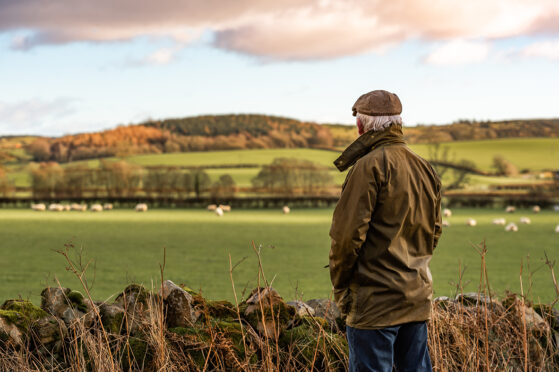For farmers their jobs can involve long, often lonely hours in rural locations without another soul in sight to speak to.
Add in the continued uncertainties surrounding Brexit and the ongoing Covid-19 lockdown and it’s a tough time for people in (and connected to) the vital agricultural industry. And that’s why the Aberdeen branch of the Samaritans is making 2021 the year of supporting farmers.
Branch director Elaine Mottram explained: “Along with the rest of the population, the farming community is coping with the pressures of the pandemic – from not being able to see family and friends to managing home schooling, concern about their own and their family’s health.
“But there are farming-specific issues, including remote working in isolation, financial pressures and even the physical toll the job takes on a person’s body.
“All the while, agriculture remains a vital industry in the north-east and the whole country, which puts a lot of pressure on workers.
“This year, we want farmers to understand that we are here 24/7, 365 days a year for them – you are never alone. As well as regular articles in the P&J, we hope to have a presence at different agricultural shows, events and locations so that we can spread the word and help as many people as possible.”
She added: “Some of our volunteers also have experience in the farming industry, or know people who work in agriculture, so they understand what the situation is like for farmers in our area.
“And we are working with other organisations who are closely involved with the farming community – NFUS, RSABI, RGU and Aberdeenshire Council to name just a few – so that we can really help with the problems they are facing.”
Mags Granger, welfare manager for RSABI, said: “We are very pleased to be involved in this campaign. We are aware of the stresses and pressures in farming and encourage those experiencing poor mental wellbeing to reach out and get the support they need.
“It’s amazing the difference one call can make…so make it today.”
The 2021 campaign has been made possible, thanks to the LNER’s Customer and Community Investment Fund, which Elaine added the branch was “incredibly grateful” for.
Kevin Gilbert, who farms near Kintore, said that he had felt down at times, but added that he had the misconception that what he was going through was never bad enough to call the Samaritans.
“I first became depressed when my father died 31 years ago. I was overwhelmed by suddenly running what was quite a large business at the age of 22. I was prescribed anti-depressants and seemed to get over it.
“More recently, my depression had been seasonal. You are flat out with harvest work and then you have mountains of paperwork to deal with, as well as a shortening day length.
“The most important thing to do is to talk to people and ask for help, but it’s knowing where to go.
“I never felt that my situation was bad enough to contact the Samaritans. I have never felt suicidal and I suppose I had always thought that the helpline was there for such acute situations.”
Elaine added: “Most importantly, we want members of the farming community to know that we are here for them and they don’t need to wait until they hit a crisis point to get in touch – we want to try and help long before then.”
If you need someone to speak to, you can call the Samaritans on 116 123 or you can email jo@samaritans.org. Everything you say is kept confidential.
The Samaritans also have an app you can download to your phone, which can provide self-help tips.

